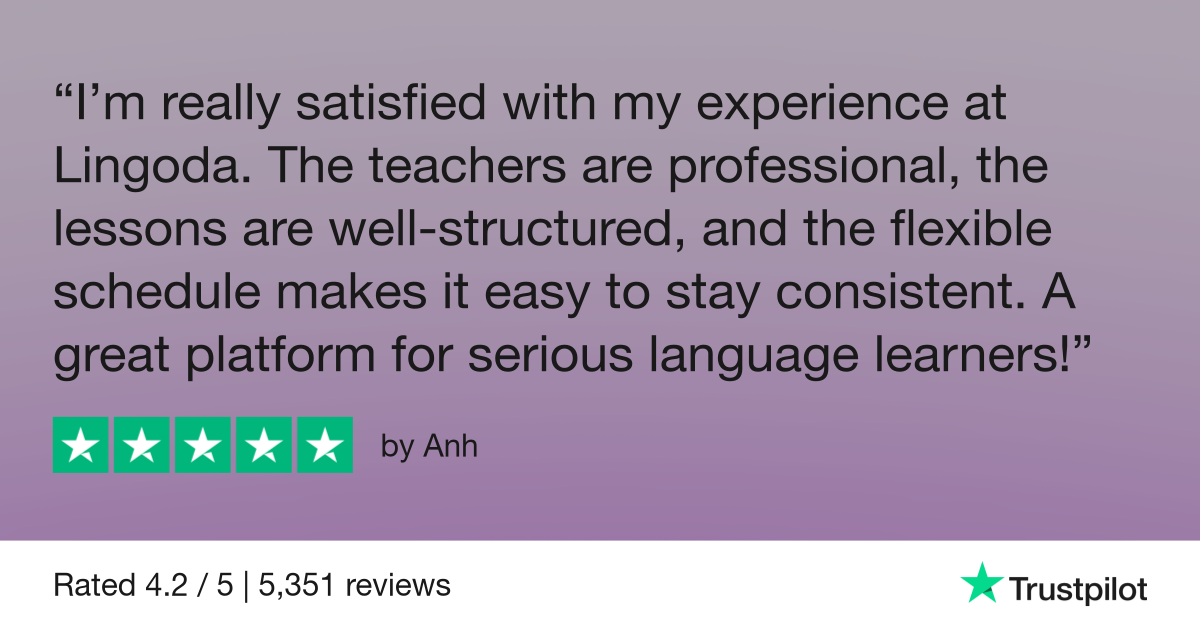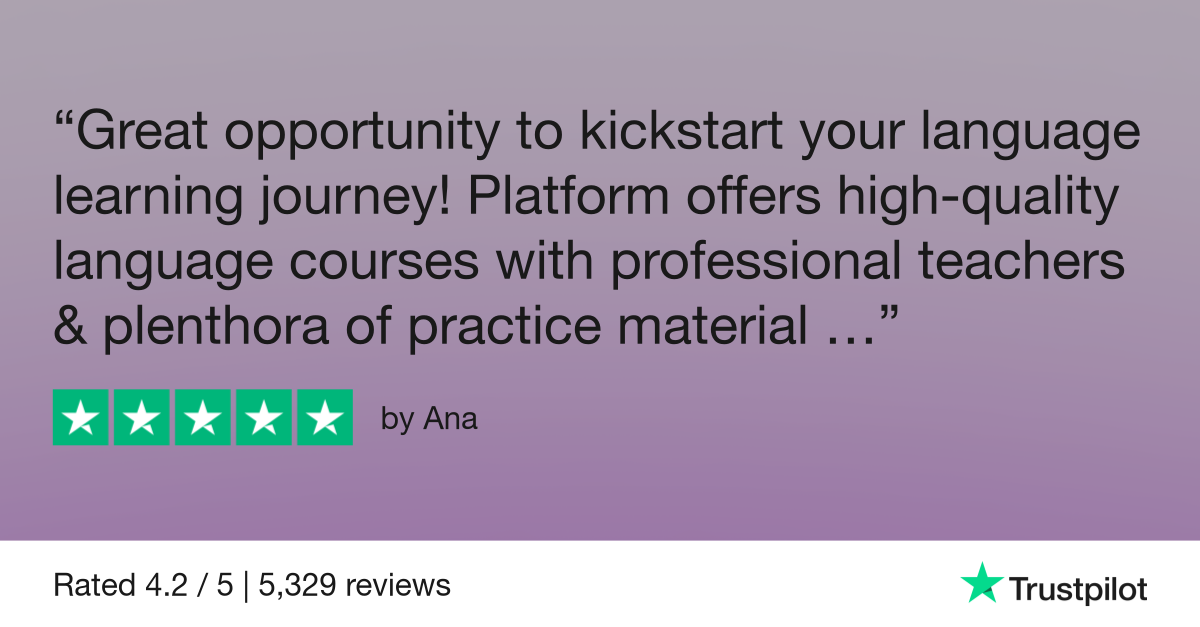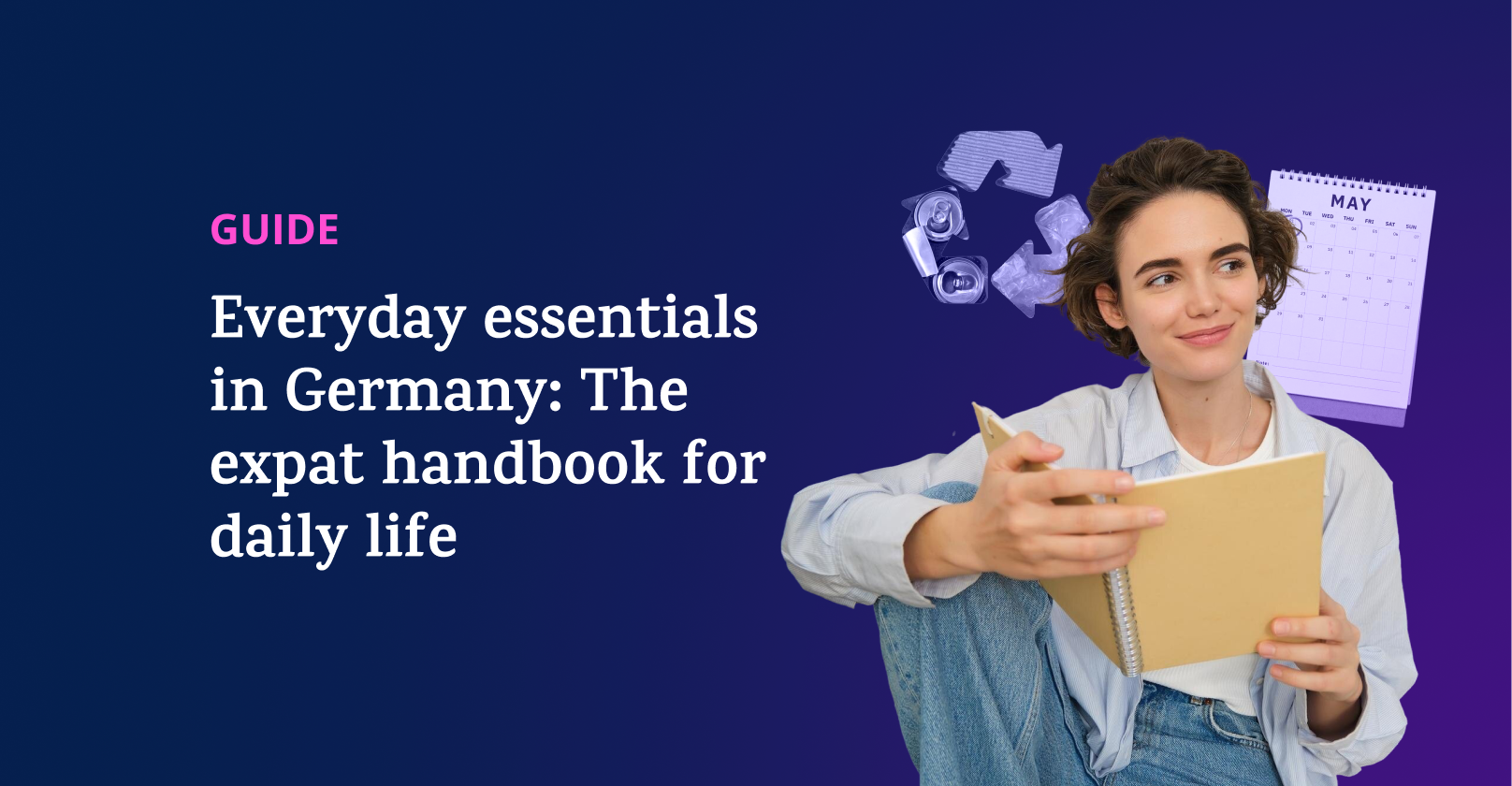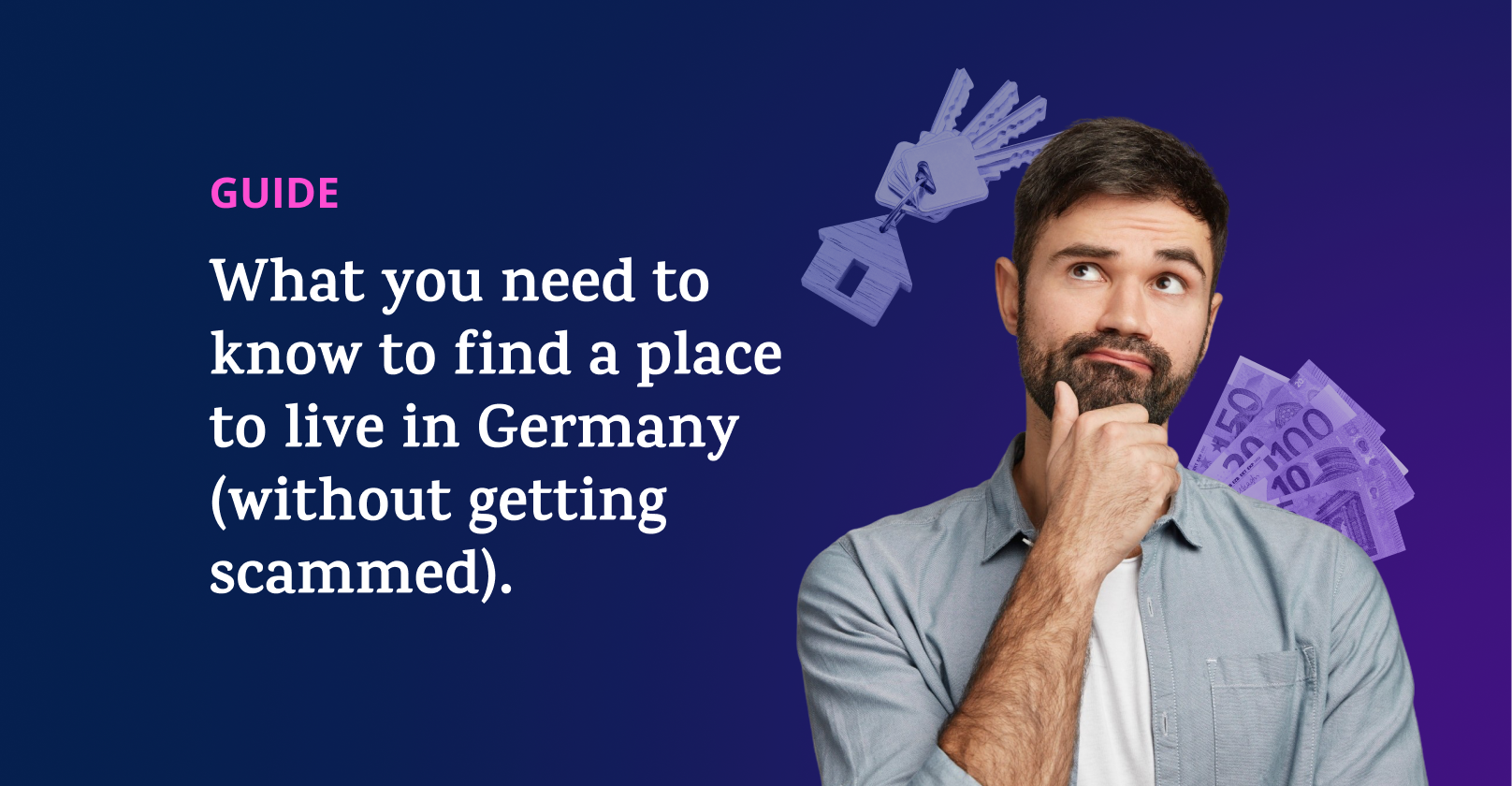German transition words: A complete guide for language learners
German transition words are essential connectors that link clauses, sentences and even paragraphs.

By signaling the relationship between different ideas, they can help your speech and writing flow in a more natural way. Transition words are surprisingly versatile — you can use them to show logical sequence, clarify cause and effect, summarize a series of ideas and more.
It can be helpful to think of German transition words as signposts, guiding your reader or listener step-by-step through your thoughts. Whether you’re writing an essay or telling a story to a friend, using the right transition words can make your German clearer and more structured.
- What are transition words in German and why are they important?
- Categories of German transition words with examples
- Understanding word order with transition words
- Top 20 most useful German transition words for learners
- Formal vs informal transition words: When and where to use them
- FAQs
What are transition words in German and why are they important?
Transition words in German, also called Konnektoren, are words or phrases that connect ideas and sentences. Mastering Konnektoren is essential for achieving fluency, as these words make conversations sound natural and give structure and clarity to texts.
In German grammar, transition words can take different forms:
- Adverbs: zuerst, dann, deshalb, besonders
- Conjunctions: und, aber, weil
- Phrases: zum Beispiel, darüber hinaus, im Gegensatz dazu
Categories of German transition words with examples
For adding information
You can use various German adverbs as transition words to add extra information and make your sentences clearer:
- Außerdem is neutral and widely used in both everyday speech and writing.
- Darüber hinaus sounds more formal and works well in essays, presentations or professional emails.
- Zudem is also formal and often appears in structured or academic writing.
For giving reasons or causes
Causal transition words in German explain why something happens. Each has its own tone, grammatical behavior and typical context.
Weil and da, for example, are subordinating conjunctions; they introduce dependent clauses and move the verb to the end. Denn, on the other hand, is a coordinating conjunction; it connects two main clauses and maintains the standard word order. There are also adverbs like nämlich, which usually comes after the statement that needs explaining.
It’s important to note that weil and denn can both express causality, but they differ in usage:
| weil | denn | |
| Type | Subordinating conjunction | Coordinating conjunction |
| Word order | Verb goes to the end | Verb stays in second position |
| Formality | Neutral; very common in spoken German | More formal; common in written German |

Learn German with Lingoda
How it works

For showing results or consequences
To express cause-and-effect relationships, German often uses transition words like deshalb, deswegen and somit. These are adverbs that introduce logical results, particularly in writing and formal contexts.
When a sentence or clause begins with deshalb or somit, it follows the verb-second rule of German main clauses. In other words, the verb remains in the second position:
- Ich hatte Urlaub, deshalb habe ich Ihre E-Mail nicht gelesen. (I was on vacation, so I didn’t read your email.)
- Somit ist das Gespräch beendet. (Therefore, the conversation is over.)
For contrasts and concessions
To highlight a contrast or make a concession in German, you can choose from a group of transition words including aber, doch, trotzdem, jedoch and dennoch. These show disagreement, exceptions or a shift in perspective.
All of these words introduce some type of contrast, but they differ in tone, placement and formality. Let’s look at the differences between aber and jedoch, for example:
| aber | jedoch | |
| Meaning | but | however, but |
| Position | Typically before the clause | Often mid-sentence or after the verb |
| Formality | Neutral; very common in spoken German | More formal; common in written German |
| Tone | Direct and conversational | Polite and impersonal |
For showing time or sequence
When telling a story or describing a process in German, you can create logical order by using time-related transition words like zuerst, dann, danach and schließlich:
- Zuerst stehe ich auf, dann gehe ich ins Bad, danach frühstücke ich und schließlich fahre ich zur Arbeit. (First I get up, then I go to the bathroom, afterwards I have breakfast and finally I drive to work.)
- Zuerst öffnen Sie die Verpackung, danach entnehmen Sie alle Teile, prüfen diese auf Vollständigkeit und schließlich beginnen Sie mit dem Zusammenbau. (First, open the packaging, then remove all the parts, check that all parts are complete and finally start the assembly.)
For summarizing or concluding
When wrapping up a thought, an argument or a message in German, you can use expressions like zum Schluss, letztendlich and im Großen und Ganzen. These phrases are especially useful in emails and essays:
- Zum Schluss möchte ich mich noch einmal für Ihre Unterstützung bedanken. (Finally, I’d like to thank you again for your support.)
- Letztendlich zeigt die Studie, wie wichtig Umweltschutz ist. (Ultimately, the study shows how important environmental protection is.)
- Im Großen und Ganzen bin ich mit dem Ergebnis zufrieden. (Overall, I am satisfied with the result.)
Understanding word order with transition words
Using transition words in German requires understanding the language’s basic sentence structure. In a standard main clause, the verb always stays in the second position. In a subordinating clause, the verb moves to the end of the clause.
This explains why coordinating conjunctions (e.g., denn) don’t change the word order, while subordinating conjunctions (e.g., weil) do:
- Heute arbeite ich nicht, denn ich habe frei. (I’m not working today, because I have the day off.)
- Heute arbeite ich nicht, weil ich frei habe. (I’m not working today, because I have the day off.)
Top 20 most useful German transition words for learners
To help you master transition words, we’ve curated a list of the top 20 most useful German transition words. Practice these often and you’ll be better able to add information, explain causes, show consequences, express contrasts, indicate sequences and summarize ideas clearly.
Want to take the next step and practice German transition words with feedback from a native-level teacher? Lingoda’s B1 German course is a great place to start.
| Transition word | English meaning | Example sentence | Common use |
| und | and | Ich mag Pizza und Pasta. | Connects words |
| aber | but | Ich möchte arbeiten, aber ich bin krank. | Shows contrast; everyday speech |
| denn | because | Ich bleibe zuhause, denn es regnet. | Introduces a reason; formal |
| weil | because | Ich bleibe zuhause, weil es regnet. | Introduces a reason; everyday speech |
| deshalb | therefore/that’s why | Ich habe viel gelernt, deshalb habe ich die Prüfung bestanden. | Logical consequence |
| deswegen | therefore/that’s why | Es ist kalt, deswegen ziehe ich einen Mantel an. | Logical consequence |
| zudem | in addition | Er arbeitet Vollzeit, zudem lernt er eine Sprache. | Adds extra information; formal |
| darüber hinaus | furthermore/moreover | Das Auto ist schnell, darüber hinaus sehr sparsam. | Adds extra information; formal |
| trotzdem | nevertheless | Es regnet, trotzdem gehen wir spazieren. | Shows concession |
| doch | however/still | Ich war müde, doch ich habe weitergearbeitet. | Shows contrast |
| schließlich | finally/in the end | Schließlich haben wir uns anders entschieden. | Concludes a story or argument |
| zum Schluss | in conclusion | Zum Schluss danke ich allen Teilnehmern. | Concludes speeches and essays |
| zuerst | first/at first | Zuerst frühstücke ich, dann gehe ich zur Arbeit. | Sequence of events |
| dann | then | Ich mache meine Hausaufgaben, dann spiele ich. | Sequence of events |
| danach | after that | Wir essen, danach schauen wir einen Film. | Sequence of events |
| außerdem | besides/also | Das Hotel ist teuer, außerdem sind die Zimmer sehr klein. | Adds extra information; neutral tone |
| im Großen und Ganzen | overall/all in all | Im Großen und Ganzen war der Urlaub sehr schön. | Summarizes or concludes |
| einerseits… andererseits | on one hand… on the other hand | Einerseits möchte ich reisen, andererseits muss ich arbeiten. | Shows balanced contrast |
| dennoch | nonetheless/even so | Er hat viel gelernt, dennoch hat er die Prüfung nicht bestanden. | Shows contrast; formal |
| jedoch | however/but | Sie hat dich zum Geburtstag eingeladen, jedoch bist du nicht gegangen. | Shows contrast; formal |
Formal vs. informal transition words: When and where to use them
We’ve already seen examples of German transition words that share similar meanings but differ in their level of formality. Knowing when and where to use a particular transition word is important for clear and appropriate communication. For example, the words you choose in a text message will differ from those suitable for a job application or professional email.
Let’s look at some examples:
| Informal/neutral | Formal |
| außerdem | darüber hinaus |
| aber | jedoch |
| trotzdem | dennoch |
What are transition words in German?
Transition words in German are expressions that connect ideas and sentences. With them, you can explain causes, show consequences, express contrasts, indicate sequences and summarize thoughts.
What is the difference between coordinating and subordinating conjunctions?
Coordinating conjunctions link two main clauses and keep the standard word order, with the verb in the second position. Subordinating conjunctions introduce a dependent clause, moving the verb to the end of the sentence or clause.
Put your German transition words into practice
German transition words are key to mastering the language and sounding natural. Need to explain why you were late for work or tell a friend about your morning routine? Transition words help you connect your ideas in these situations and more. They aren’t too difficult to learn, but it’s important to keep in mind basic sentence structure and the appropriate level of formality.If you’d like to learn German online and practice transition words in real-life contexts, Lingoda can help. With small class sizes, you’ll enjoy a more interactive and effective learning experience.

Learn German with Lingoda
How it works

















